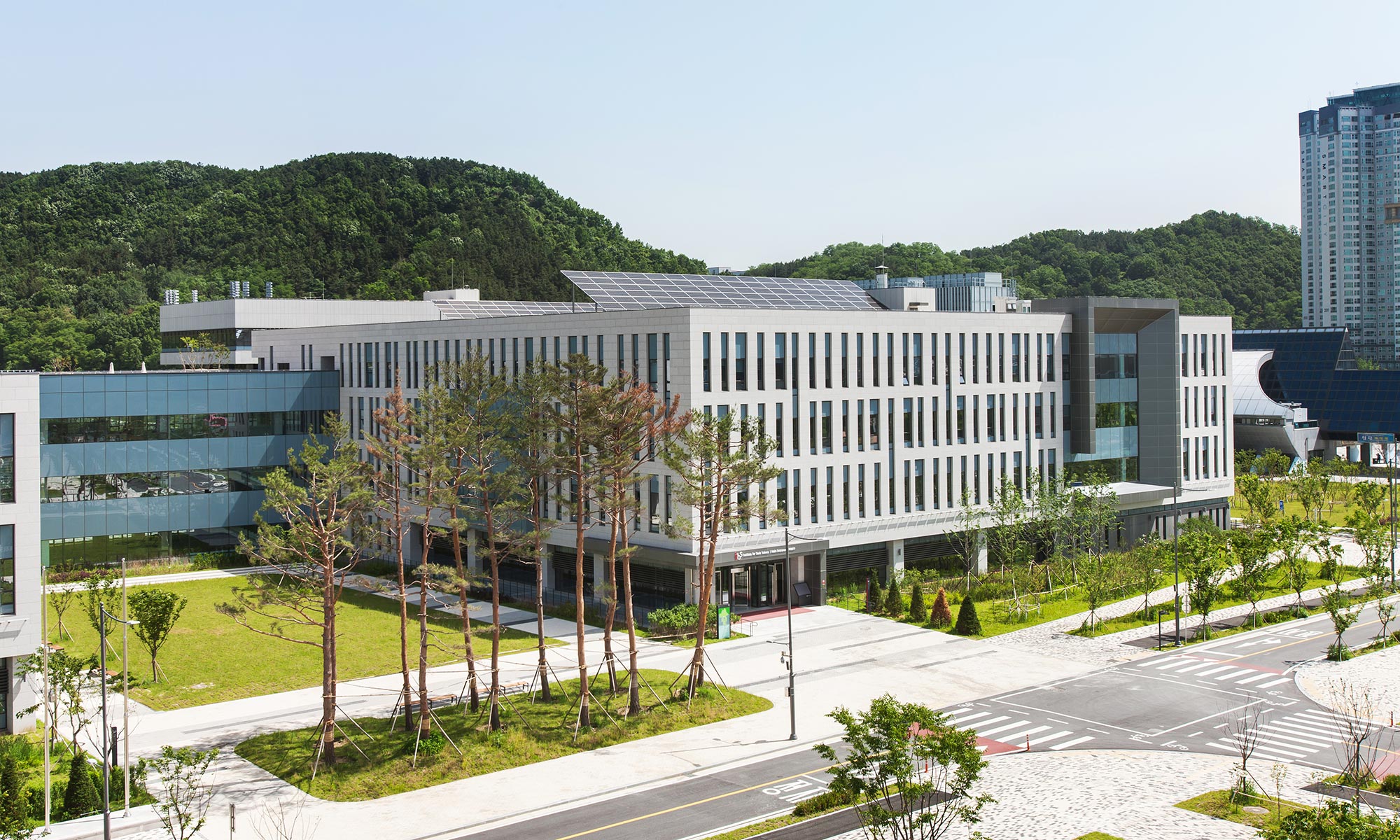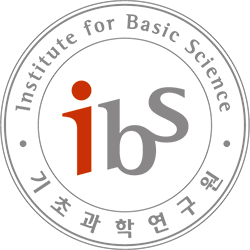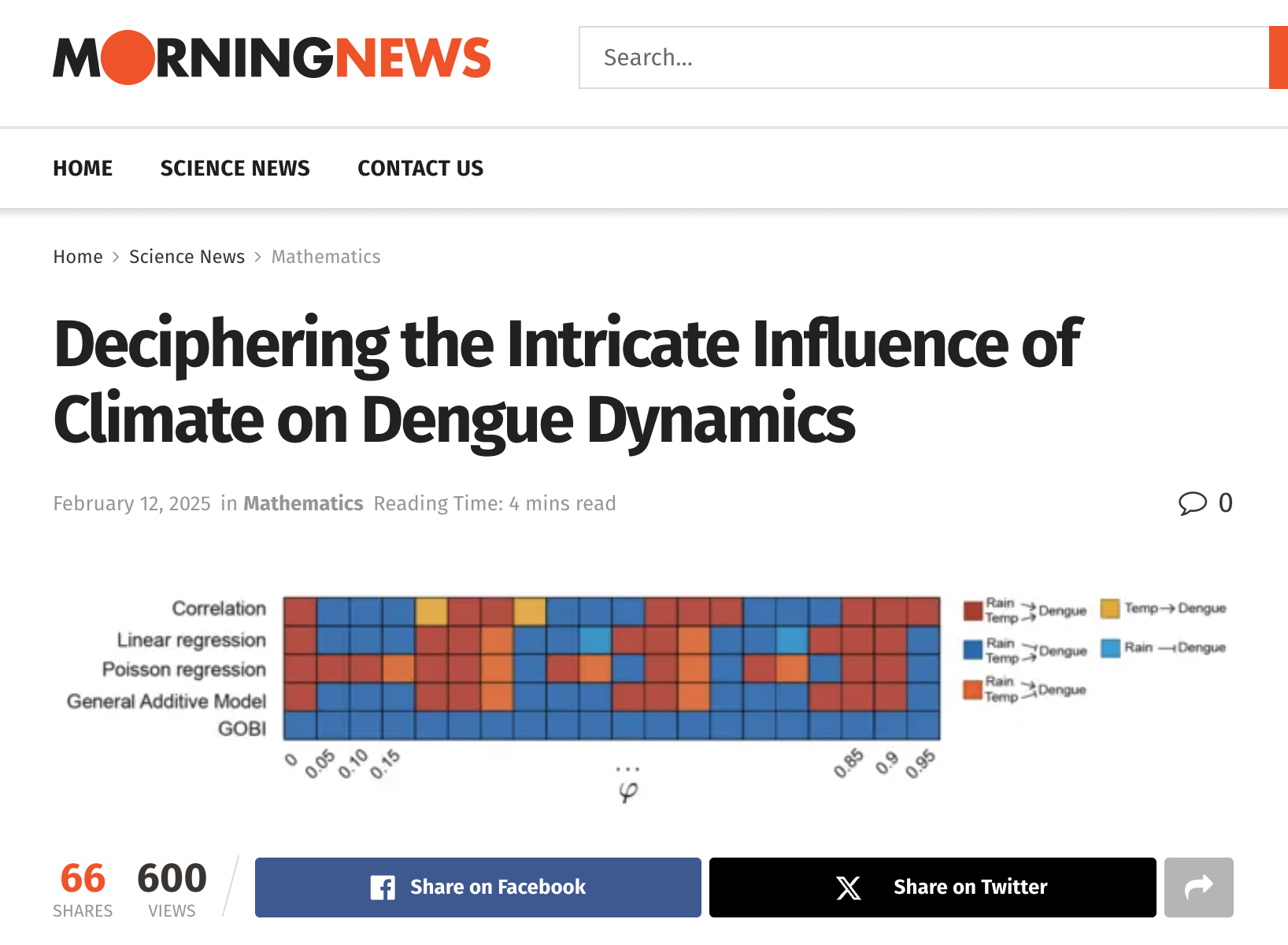According to the WHO, the number of dengue cases in North and South America surged from 4.1 million in 2023 to over 10.6 million in 2024, intensifying the public health crisis. In response, the BIMAG research team analyzed the complex impact of climate change on dengue incidence using the GOBI (General ODE-Based Inference) methodology. The study revealed that while rising temperatures consistently increase infection rates, the effect of rainfall varies depending on the length of the dry season in each region. This research was published in Science Advances on February 12 and has been featured in various media outlets.
WHO에 따르면, 북남미 지역의 뎅기열 환자가 2023년 410만 건에서 2024년 1,060만 건 이상으로 급증하며 공중보건 위기가 심화됐습니다. 이에 BIMAG 연구진은 GOBI(General ODE-Based Inference) 방법론을 활용해 기후 변화가 뎅기열 발생에 미치는 복합적인 영향을 분석했습니다. 그 결과, 온도 상승은 감염률을 일관되게 증가시키는 반면, 강우의 영향은 지역별 건기 길이에 따라 다르게 나타나는 것으로 밝혀졌습니다. 본 연구는 Science Advances 저널에 2월 12일 게재됐으며, 다양한 언론을 통해 소개됐습니다.
Journal Link: (Link)


